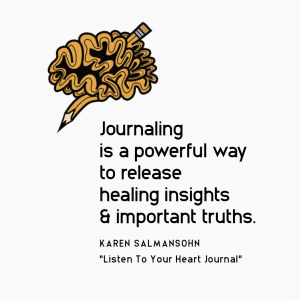 Both mindless eating and fog eating are sneaky habits that lead to overeating and weight gain. Let’s explore the science to overcome them.
Both mindless eating and fog eating are sneaky habits that lead to overeating and weight gain. Let’s explore the science to overcome them.
Are you tired of reaching for food without really knowing why?
Or maybe you find yourself mindlessly munching on snacks without even realizing it.
Well, my friend, you’re not alone. This is a common experience for many people. And it’s what researchers call “mindless eating” and “fog eating.”
No worries – I’m here to help you break the cycle of these unhealthy eating habits!
As you might know, I am a popular wellness influencer and bestselling wellness author.
I founded a nutritionist recommended online program called The Stop Emotional Eating Course.
I love sharing insights and techniques to help people to become healthier. With this in mind, I put together this short guide for how to stop mindless eating and fog eating.
Coming up… I will explore the 10 signs that you’re a mindless eater or fog eater. Plus, I’ll give you research-based strategies to overcome these forms of emotional eating – once and for all!
What is Mindless Eating and Fog Eating?
Both mindless eating and fog eating are each forms of emotional eating. These terms are pretty much interchangeable!
- Mindless eating is when you eat without paying attention to what you’re doing or what you’re eating.
- Fog eating is when you reach for food without really even knowing why. You’re in a foggy mental state.
- Both are very similar – and both can be driven by stress, anxiety, or other emotional factors.
- And both can lead to overeating, weight gain, shame, self loathing… and then some!
10 Signs You’re a Mindless Eater or Fog Eater
- You eat while distracted, such as while watching TV, working at your computer, or scrolling through your phone.
- You find yourself eating while driving, not paying attention to what you’re eating.
- You find yourself eating more than you intended to.
- You eat quickly, scarfing down food, without truly tasting it and savoring it.
- You often eat when you’re not hungry.
- You reach for food to cope with stress – because you eat to regulate your emotions.
- You eat when you’re bored.
- You don’t remember what you’ve eaten.
- You eat large portions without realizing it.
- You don’t feel satisfied after eating.
How To Stop Mindless Eating and Fog Eating
1. Avoid Distracted Eating
 Distracted eating is one of the biggest contributors to mindless eating. When we’re distracted by our phones, TV, or other devices, we’re not paying attention to what we’re eating or how much we’re eating.
Distracted eating is one of the biggest contributors to mindless eating. When we’re distracted by our phones, TV, or other devices, we’re not paying attention to what we’re eating or how much we’re eating.
That’s why avoiding distracted eating is key to conquering mindless eating and fog eating.
- A study published in the Journal of the Academy of Nutrition and Dietetics found that people who ate while distracted consumed significantly more calories compared to those who ate without distractions.
2. Focus on Package Size and Portion Distortion
Portion distortion is a big problem when it comes to both mindless eating and fog eating.
We often eat more than we intended to because we’re not paying attention to the portion sizes or because our perception of portion sizes has been distorted.
To conquer mindless eating and fog eating, it’s important to focus on package size and portion distortion.
- A study published in the International Journal of Obesity found that people who used portion control tools, such as smaller plates and bowls, consumed significantly less food compared to those who didn’t use these tools.
3: Chew Slower & Savor The Flavor
 Mindful eating is all about paying attention to what you’re eating, how you’re eating, and why you’re eating.
Mindful eating is all about paying attention to what you’re eating, how you’re eating, and why you’re eating.
And when it comes to conquering fog eating and mindless eating, practicing mindful eating is key.
- A study published in the Journal of the American Dietetic Association found that people who practiced mindful eating lost significantly more weight compared to those who didn’t practice mindful eating
To make the most of your mindful eating practice, make sure to chew your food slowly and savor the flavor.
- Research has shown that chewing food more slowly and savoring the flavor can help reduce overeating and promote feelings of fullness.
4: Focus on Self-Care
Self-care is key to conquering both mindless eating and fog eating.
When we take care of ourselves, we’re less likely to reach for food as a form of comfort or stress relief.
- A study published in the Journal of Health Psychology found that people who focused on self-care and stress management strategies were less likely to engage in emotional eating.
5: Keep a Food Diary
 Keeping a food diary can be a powerful tool in conquering both fog eating and mindless eating.
Keeping a food diary can be a powerful tool in conquering both fog eating and mindless eating.
By keeping track of what you eat, when you eat, and why you eat, you can identify patterns and triggers that lead to emotional eating.
- A study published in the American Journal of Preventive Medicine found that people who kept a food diary lost significantly more weight compared to those who didn’t keep a food diary
6. Focus on Quality over Quantity
When you focus on eating quality “nutrient-dense” foods, you’re less likely to fog eat and mindless eat.
- In fact, a study published in the Journal of Nutrition Education and Behavior found that people who focused on eating quality foods lost significantly more weight compared to those who focused on eating low-calorie foods.
Why?
- Firstly, nutrient-dense foods are packed with essential vitamins and minerals. And when we nourish our bodies with these nutrients, we feel better and are less likely to turn to food for comfort.
- Secondly, nutrient-dense foods are typically more satisfying than low-calorie foods. They keep us full for longer, reducing the urge to overeat or engage in emotional eating.
6: Seek Support
Finally, seeking support is crucial when it comes to overcoming mindless eating and fog eating. Whether it’s talking to friends, family, or a Mindset Mastery Coach… you should seek support to overcome these forms of emotional eating.
- A study published in the Journal of Consulting and Clinical Psychology found that people who sought support for fog eating and mindless eating were significantly more successful in overcoming emotional eating.
Support Tools to Overcome Mindless Eating and Fog Eating
Break the cycle of mindless eating and fog eating
You can do it! So, don’t wait. Take the first step forward today.
P.S. Before you zip off to your next Internet pit stop, check out these 2 game changers below - that could dramatically upscale your life.
1. Check Out My Book On Enjoying A Well-Lived Life: It’s called "Your To Die For Life: How to Maximize Joy and Minimize Regret Before Your Time Runs Out." Think of it as your life’s manual to cranking up the volume on joy, meaning, and connection. Learn more here.
2. Life Review Therapy - What if you could get a clear picture of where you are versus where you want to be, and find out exactly why you’re not there yet? That’s what Life Review Therapy is all about.. If you’re serious about transforming your life, let’s talk. Learn more HERE.
Think happier. Think calmer.
Think about subscribing for free weekly tools here.
No SPAM, ever! Read the Privacy Policy for more information.
One last step!
Please go to your inbox and click the confirmation link we just emailed you so you can start to get your free weekly NotSalmon Happiness Tools! Plus, you’ll immediately receive a chunklette of Karen’s bestselling Bounce Back Book!


 Both mindless eating and fog eating are sneaky habits that lead to overeating and weight gain. Let’s explore the science to overcome them.
Both mindless eating and fog eating are sneaky habits that lead to overeating and weight gain. Let’s explore the science to overcome them. Distracted eating is one of the biggest contributors to mindless eating. When we’re distracted by our phones, TV, or other devices, we’re not paying attention to what we’re eating or how much we’re eating.
Distracted eating is one of the biggest contributors to mindless eating. When we’re distracted by our phones, TV, or other devices, we’re not paying attention to what we’re eating or how much we’re eating. Mindful eating is all about paying attention to what you’re eating, how you’re eating, and why you’re eating.
Mindful eating is all about paying attention to what you’re eating, how you’re eating, and why you’re eating. Keeping a food diary can be a powerful tool in conquering both fog eating and mindless eating.
Keeping a food diary can be a powerful tool in conquering both fog eating and mindless eating.